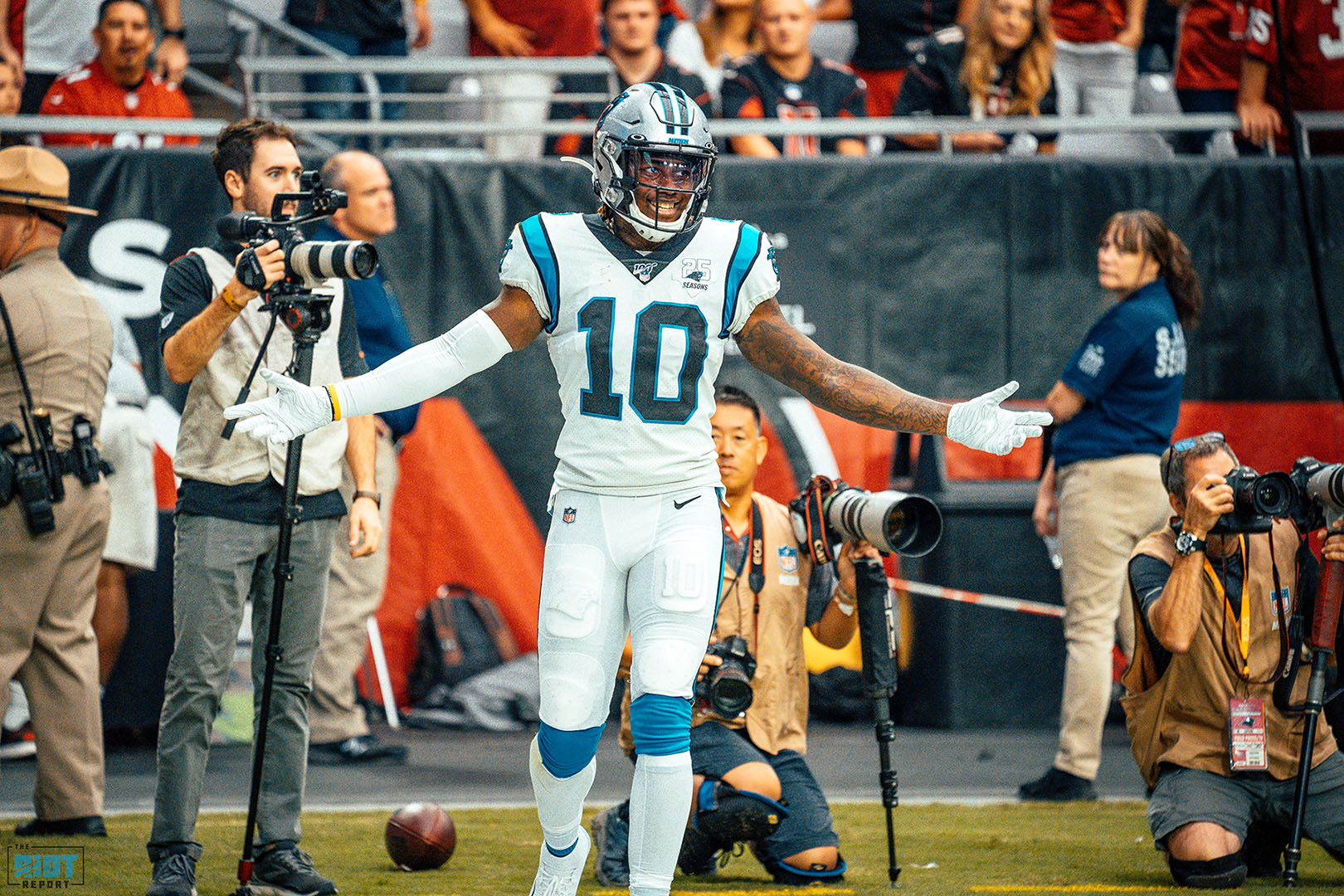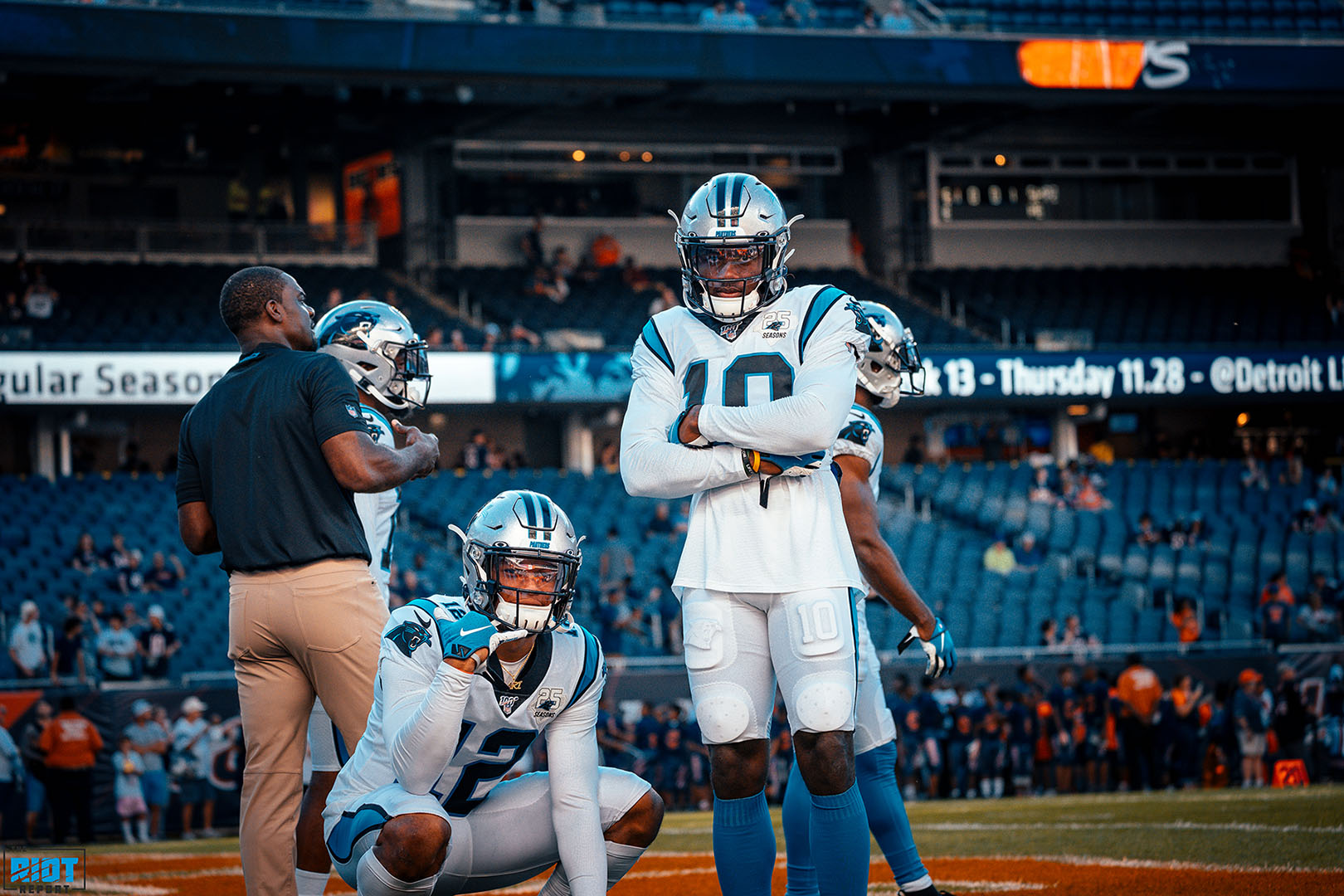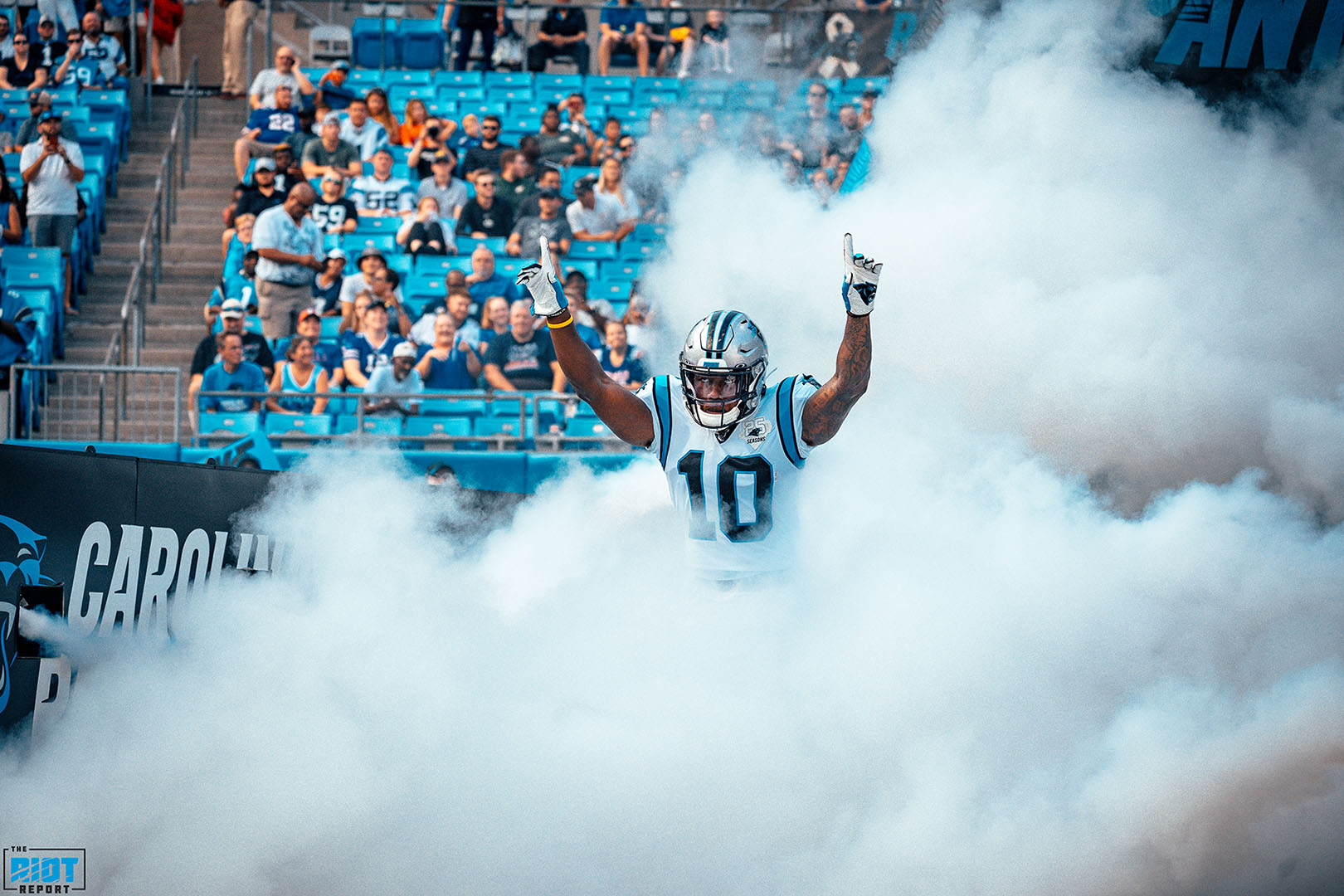It’s been a little over two calendar years since Curtis Samuel played his first down of football as a member of the Carolina Panthers. But, in reality, the Curtis Samuel of 2017 and the Curtis Samuel of 2019 could not be more different.
A second-round pick out of Ohio State, Samuel came to the Panthers as a far rawer receiver than most. With the Buckeyes, he had been a gadget-style running back/wide receiver hybrid, meaning that he faced a greater learning curve in becoming a full-fledged pro wide receiver than other second-round picks. And that learning curve was steepened by adversity: namely, an ankle injury that ended his rookie season and a heart condition that delayed the start of his 2018 season and caused conditioning issues that limited how much the Panthers could use him.
Samuel’s knowledge of his position, and his own health beyond that, are no longer issues. And three games into a young season, he is making the sort of plays that he was so far away from making as a rookie and we saw flashes of in his second season: hauling in the first deep downfield pass by Cam Newton in ages. Getting open and presenting a terrific target for his quarterback. Toe-tapping the Panthers into a scoring opportunity that helped them pull away from the Cardinals.
Compared to when he first arrived, everyone can see the difference. And mentally as well as physically, Curtis Samuel can sense the difference as well.
“I feel like I’m a totally different player coming into the league than I am now,” Samuel said this week. “It’s just about getting the reps and seeing things over and over and over.”

Like most players who go from college to the NFL – Particularly “big-time” programs like Ohio State, which plays a brand of football distinctly separate from “pro-style” ball – Samuel had to learn that the NFL is a far different world. Not so much because the speed of the game is any different, but because of the competition: Specifically, veteran players who study their craft and aren’t going to be caught unawares.
“You don’t have [any] classes. Your only job is to study football,” noted Samuel. “And they put in more time, so you’re going up against veteran guys who understand what you’re doing out there.”
The natural counter to the studious is for oneself to be studious in turn. And that’s just what Samuel has done. Thanks to the experience he has accrued, he has been able to pick up on different habits from players and coaches he has worked with. And so, he is watching film differently than the way he did when he first arrived on Mint Street.
With greater work on the field has come greater technique.
“Once you’re doing things over and over again – getting the reps over and over – things start becoming easier to you, and it starts becoming more simple,” said Samuel, who has 13 catches for 176 yards and a score in three games thus far this season. “All it takes is for my feet to get the patterns down pat and just keep getting the reps, keep getting the reps, and everything will come to me. It don’t take long with me. Once I start doing something I get more and more comfortable.
“And then once I let that swag go with it, it’s lit.”

Samuel’s last point about swag – that magic quality that has so often been associated with Panthers football – is an important one, as he has been a part of a significant culture change for Carolina’s receiving corps. In the years following the departure of Steve Smith, the Panthers’ wide receivers were oft-criticized as below-average compared to the rest of the league, as well as leaving more plays on the table than they made.
In the past year, things have changed. Thanks to the rise of Samuel alongside D.J. Moore, the Panthers now have two rising stars at their position whose exuberance sets the tone for not only their offense, but also for their position room, a group which also includes reliable veterans Jarius Wright and Chris Hogan.
“That’s what keeps us close. We’re just all kind of similar types of guys,” said Samuel of the wide receiving corps. “Even if you’re quiet, you come in our room [and] you just buy into our culture. We like to enjoy ourselves. We go out and practice hard, we go out there and play hard. But we like to have fun and dance and have a little swagger. We don’t wanna be too uptight – can’t play like that.”
As he has become more and more essential to Carolina’s offense, playing with swagger and excitement has become a clear part of Samuel’s game. And Samuel’s excitement is something anyone can see: In Week 17 of last season, for instance, Samuel celebrated a 53-yard touchdown grab against the New Orleans Saints by busting out his dance moves and showing Carolina’s division nemesis how the “Choppa Style” dance is actually done.
That energy – and that attitude – is what is starting to shape Samuel’s approach to playing in the NFL. Letting the game flow as it may, not overthinking things, having fun – and most of all, understanding that he is living out his dream.
“This is what I’ve wanted to do my whole life,” said Samuel. “I know it’s a professional game and you’ve got to take it seriously, but I like to enjoy myself and enjoy what I’m doing.”

